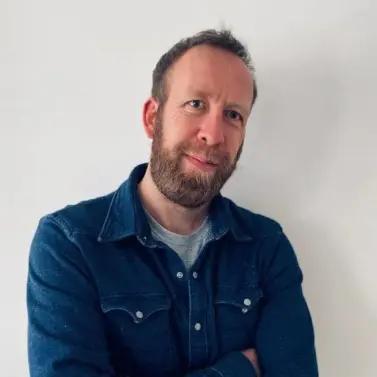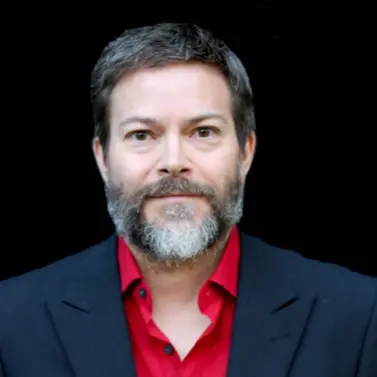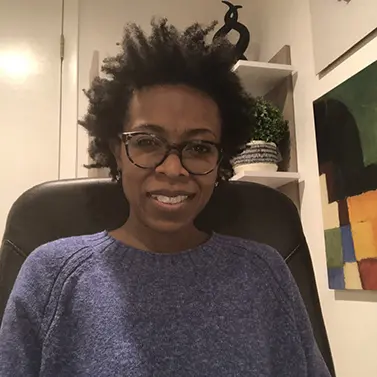Acknowledging that your loved one has a substance use addiction can be frightening for you and for them. It’s human nature to resist confronting that which promises to cause us pain, either physically or emotionally. Mental health experts and others shared some of the reasons why it’s often difficult to seek treatment.

Brittani Sitar
5 Reasons Why Abusers Resist Getting Treatment
1. I can do it on my own
This is one of the top reasons people resist going to treatment. The belief is that they can “just stop” when they want. It often takes several attempts to cut back, modify using patterns, cold turkey on the couch, before realizing that treatment is what is needed. Oftentimes family members can interrupt this process by thinking they can “babysit” their loved one or thinking “they would never use in my home.” This is a vicious cycle that most families go through before reaching the agreement that treatment is necessary.
2. The system has failed us
This is one of the most infuriating parts of working in this field. Insurance companies make getting treatment very difficult for people often not covering treatment or not allowing providers to go into the network. This makes it seem hopeless for substance abusers trying to seek help and they will often end up on waitlists for nonprofit centers to get help. It is often difficult to get treatment unless you have a lot of money to pay privately.
3. The stigma
There is a huge stigma surrounding “being an addict.” This is often one of the top reasons people avoid it. Society’s idea of what an addict is looks dark and scary. It often doesn’t categorize a well-off, clean-cut, modern-day family as people who would become addicted to a substance. Oftentimes you will see businessmen and women and the middle to upper-class populations avoiding this simply to not be categorized with the “homeless addicted” population, which is the visual of addiction that society sees. There is also a lot of resistance to the 12 steps often implemented in treatment centers.
4. Work and kids
Treatment is a big commitment, usually if detox is needed you will need to stay for a week, and it is recommended to stay for at least 30 days. For a lot of families, it is not realistic to be gone this long from family, jobs, pets, or other responsibilities. This is a big barrier in seeking help and often leads to people leaving treatment before completing it.
5. Bad previous experiences or too many
There are several treatment centers that are exploiting clients, not providing good care, and overall providing a bad experience for people. If someone ends up in one of these centers, it would be difficult to trust another one. Some people have been to treatment several times and feel that treatment “doesn’t work for them.”
Stigma and Denial
The stigma
The stigma holds most of us back. Being labeled as an alcoholic, addict, or substance abuser doesn’t make anyone feel good about themselves. Most people believe that we choose to drink or use drugs in a self-destructive way and that we are selfish people who prefer alcohol and drugs over our loved ones.
Many different surveys across the world have found that addiction is the most stigmatized, harshly viewed mental illness with most of the general population believing that addiction is a choice, people with addiction are weak, and helping people who struggle is a waste of government funding.
Addiction is the most stigmatized mental illness in every country except for Ethiopia, where only people with leprosy are more stigmatized. The stigma and belief that we are weak-willed losers cause intense amounts of shame and self-hatred for the person struggling with addiction. No one would choose to drink or use that way, and no one wishes that we could stop more than the person struggling with the addiction.
Denial
Because the stigma makes us feel so ashamed about ourselves, we stay in denial for a very long time. We convince ourselves that we will learn to control it, that we’re not that bad, or that everyone is just overreacting. A 2015 study looked at people who were addicted to meth and compared a group who were in denial about their drug use with a group who was not in denial.
The researchers found that being in denial reduces the ability of the parts of the brain that control emotional response, self-awareness, and error perception to communicate with the parts of the brain that process information and create problem-solving actions. Having reduced neuroplasticity in these areas of the brain makes it very hard for someone to accept that they are struggling with addiction. People who are in denial have alcohol or drug-induced changes to the brain that result in a lack of self-awareness of their problem.

Gillian Tietz

Alexander Burgemeester
Lack of Understanding and Expensive Treatment Costs
It can be very difficult for those suffering from an addiction to seek treatment. The stigma surrounding seeking treatment is often overwhelming and can deter people from following through. There can be many setbacks for people with addictions even when they seek help. This can cause family members or close friends to be judgemental and not fully understand how tough it can be.
In many places as well, going through treatment can be very expensive, and not everyone has the means to pay for it. This is a large deterrent for people and it can be difficult as well to find the right insurance to help cover it. The location of treatment facilities is also something that can make people not want to pursue it as it can be far from their loved ones. This can make it tough to go as they are far away from their known comforts.
Seeking treatment for an addiction is a big step in someone’s healing journey, however, it is not always easy. All someone can do is try to encourage someone to seek help and understand at the same time the struggles they face.
Unresolved Trauma or Mental Illness
Most substance abusers are resistant to getting treatment because they have unresolved trauma or mental illness that they are self-medicating for. When people try to take away their only coping mechanism, they are rightly scared. As bad as their substance use might be, it can feel like safety because it’s what’s familiar to them. Without having other self-care options and coping skills, their DOC may be the only way they know to handle their inner pain.

Misha Tuesday
Misha Tuesday, The Mystic Hypnotist and Founder of Hypno-Energize.

Tom Miller
Afraid of the Withdrawal Symptoms and Being Alone
Addicts do not like fighting addiction. As soon as they try, they experience the worst kind of withdrawal effects. Because the more someone takes drugs, the more their body craves it. It’s a never-ending thirst once it gets out of control, thus for an addict, it’s immensely hard to fight addiction. For an addict, the drug is the only thing that matters. Nothing else exists and they don’t want to feel alone so they don’t want to lose the high even though it damages their life and family’s life. They become blind and numb to the real world.
They Don’t Want a Life Without Substance
I’m a veteran and I still struggle with substance abuse to this day. The reason we have trouble going to treatment is that we surround ourselves with people who share our struggles. It’s easier to hang out with alcoholics than it is to hang out with people who do not want to get drunk all day. When you surround yourself with other substance abusers, you don’t see that you have a problem. Substance abusers are hesitant to go to treatment because they don’t know what life is without substances in it.

David Kendrick

Kayla L
False Sense of Power Over Addiction
Most substance abusers resist getting treatment as they have mistaken the notion that they have power in their addiction and reject potential assistance. In some cases, this is due to self-fulfilling prophecies stating that they will overcome addiction by themselves. In others, it is a defense mechanism for one’s pain.
One common belief about substance abuse stems from poor choices made in one’s past or personal history with drugs and alcohol. However, many individuals have difficulty getting past the addiction and entering treatment because they are responding to something other than their addiction. Many researchers pointed out the role of childhood trauma in substance abuse, and treatment programs now understand how to treat substance abusers who have experienced childhood trauma.
Heavy Judgement
Whenever substance abusers are asked to get treatment, they feel as if they are guilty of a crime and getting treatment is their admission of the mistake. This makes them feel low about themselves and tends to make them more depressed about their current situation. Substance abusers are in denial of their situation and how it affects them which is why they refuse to ask for help from other people. They will rather drown in their bad situation than allow someone to help them.

Dominic Harper

Clare Mambwe
No Replacement for the Addictive Effect
I’ve had the chance to work with people who suffer from substance abuse, and I have come to understand and learn that substances give them a means of coping with their environment, whether it’s a means to socialize or to cope with hard things in their lives.
Most people find it difficult to give up substances because they have nothing to replace them with and their brain is used to having that numbing feeling or feeling high.
Taking substances away leaves a person to deal with all the things drugs or alcohol prevented them from dealing with, and if they do not have a great support system to deal with all of that, then they may become too uncomfortable and go back to using again.
At the end of the day, when addicts stop using, they need something else to look forward to replacing their need to use.
This is a crowdsourced article. Contributors' statements do not necessarily reflect the opinion of this website, other people, businesses, or other contributors.
